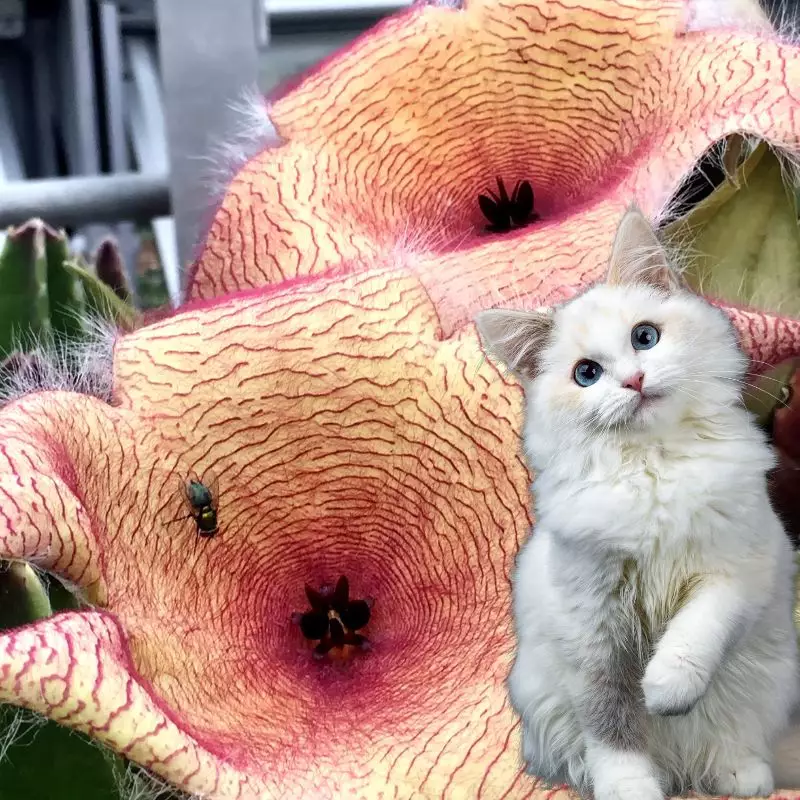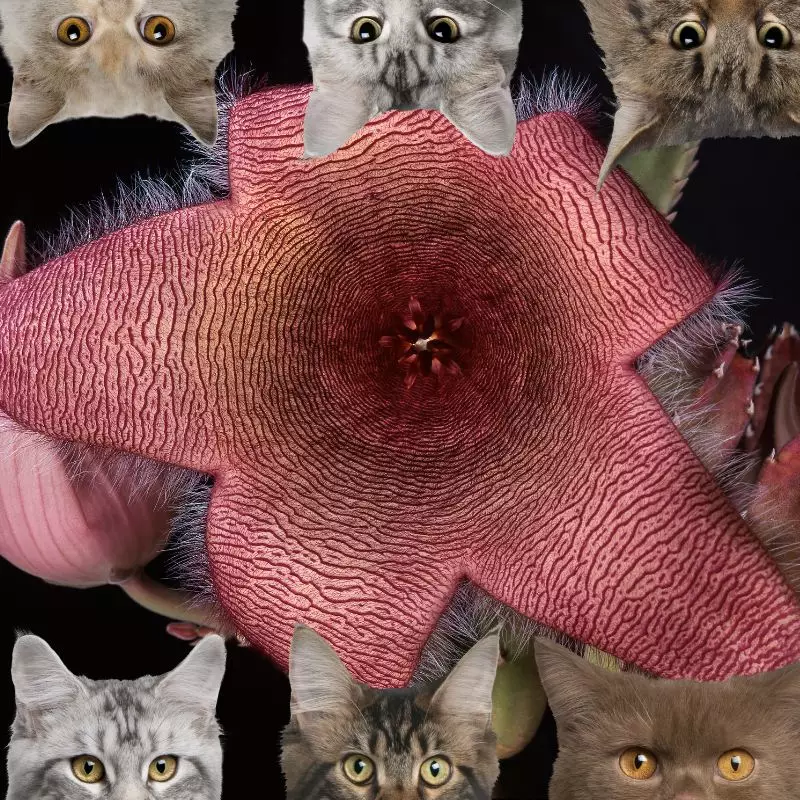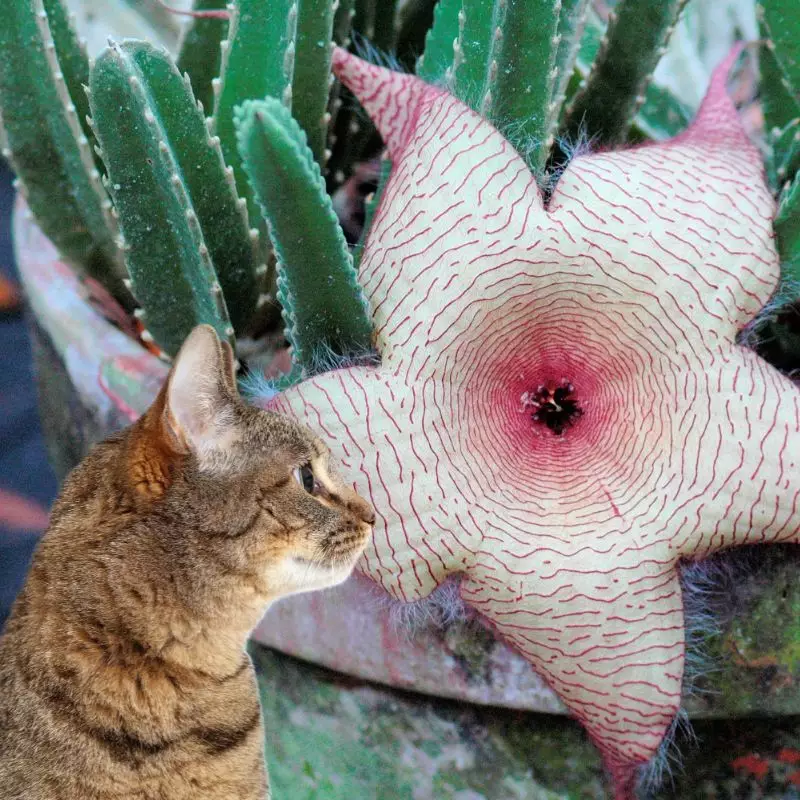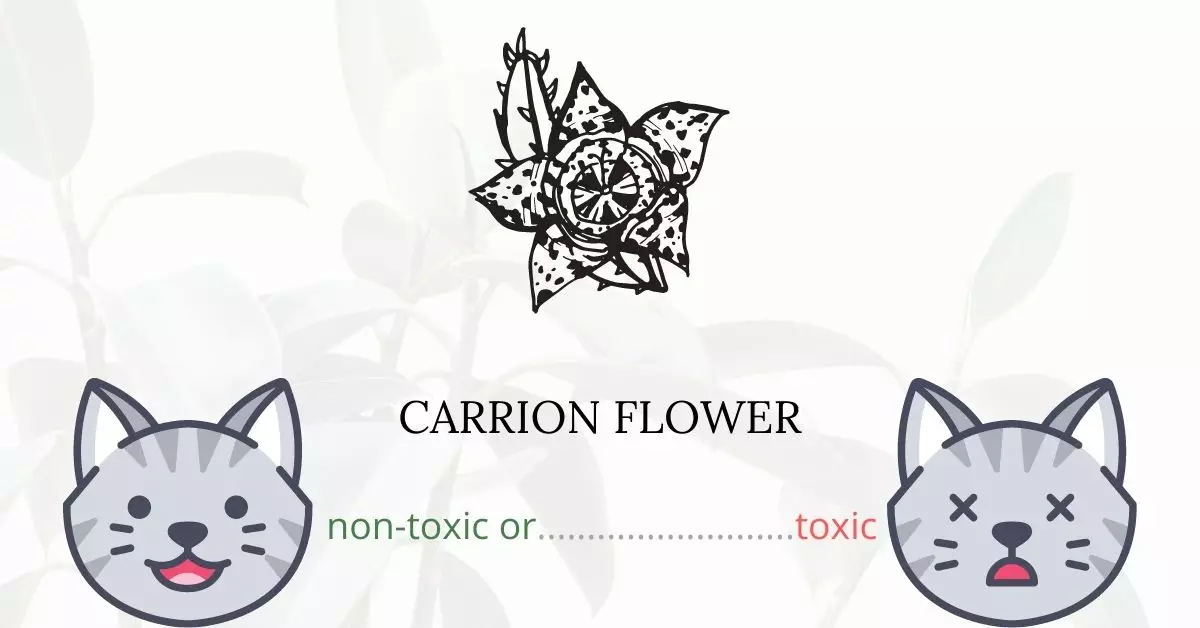No, the Carrion Flower, also known as the Hairy Toad Plant, is not toxic to cats; it is devoid of components that could be potentially harmful to them.
This article, ensuring the highest level of accuracy and reliability, is the product of collaboration with a team of seasoned Doctors of Veterinary Medicine (DVMs). Through their expert contributions, we are able to furnish precise and current information about the potential hazards related to various plants, focusing here on the Carrion Flower, and their impacts on cats. Additionally, every plant discussed, including the Carrion Flower, has been meticulously researched using high-authority websites such as ASPCA and PetMD to corroborate our findings.
It’s notable that the Carrion Flower is listed by the American Society for the Prevention of Cruelty to Animals (ASPCA) as a non-toxic plant not only for cats but also for dogs and horses.
Can Cats Eat Carrion Flower or Hairy Toad Plant?

Your cat will not be harmed by a taste of carrion flower. This plant does not have any recognized harmful qualities. Touching, licking, and nibbling on it is safe for cats.
However, keep in mind that too many plants are bad for your kitty companion. Plants of any kind are difficult for cats to digest. Their bodies are not designed to process plant resources because they are natural predators.
What is Carrion Flower or Hairy Toad Plant?

The Carrion flower is scientifically known as Stapelia hirsuta. It is also known as African Starfish Flower, Carrion Plant, Hairy Stapelia, Hairy Toad Plant, Shaggy Stapelia, and Starfish Flower. This plant was named after Johannes van Stapel, who discovered it. The flower’s name, Hirsuta, means hairy. It’s a succulent plant with mushy square stems and huge, hairy, red flowers in a star shape. Within the species, there are various different types. Others are more difficult to grow. Kinds with slightly hairy stems and more showy or distinctive flowers may be more difficult to grow than varieties without these characteristics. The flowers are pollinated by flies. They are drawn to the blossoms’ terrible odor, which is similar to that of decaying meat. The hairs, color, and surface of the bloom tend to fade as it ages, giving it the appearance of a dying animal. The twin seed horns produced by this pollination are quite appealing.
Keeping Cats Away From Carrion Flower or Hairy Toad Plant

Thankfully, your cat will only try to eat your hairy toad plant on extremely rare occasions. They have an unpleasant odor and taste, and your cat will normally seek out something more enticing. This does not, however, rule out the likelihood that your cat or kitten will devour your houseplants. They’ll be sniffing around them at the very least.
Using a spray repellant is probably the easiest and most cost-effective technique to keep them away from your houseplant. If you enjoy DIY projects, you can mix cayenne pepper into the water and spray it on your houseplants. The same can be done with vinegar or citrus fruits like lemon. We recommend purchasing a spray from a store because it is the most cost-effective and effective.
Plants to Avoid For Your Cats
If you are a cat owner and unsure if the plants growing in your yard are harmful to your cats, check out this list of toxic plants for cats. You can also check our list of non-toxic plants for cats.





